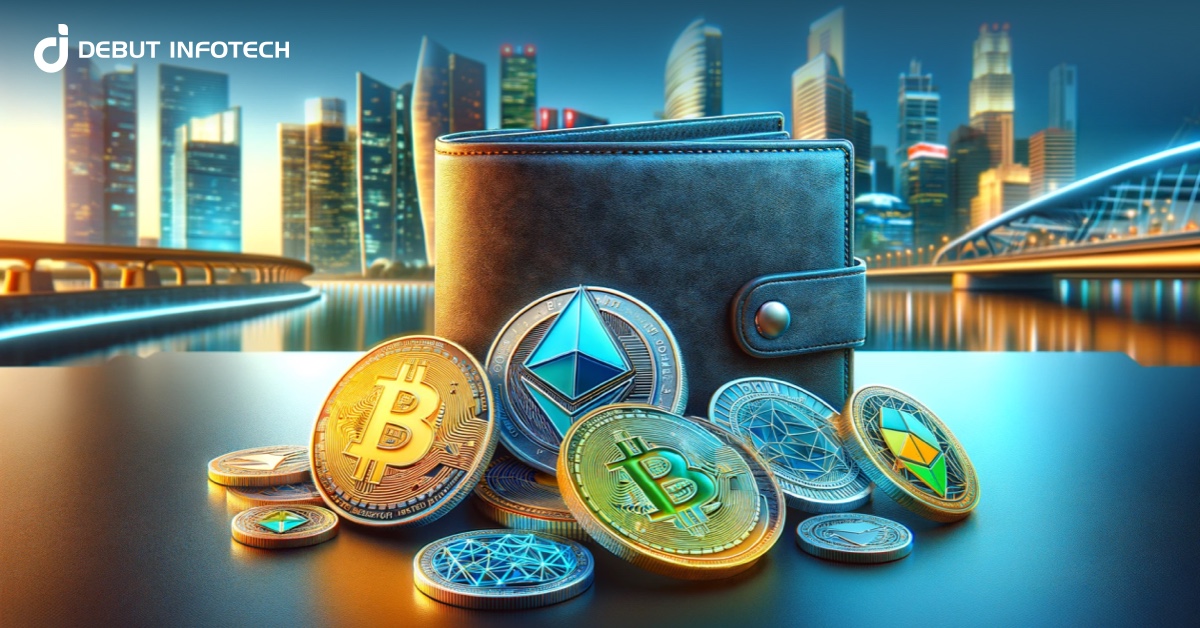The global remittance market is a vital lifeline for millions of people worldwide, particularly in developing countries where financial inclusion remains a significant challenge. Traditional remittance systems, often plagued by high fees, slow transaction times, and limited accessibility, have long needed innovation. Enter decentralized wallets—a revolutionary solution that leverages blockchain technology to transform the way remittances are sent and received globally. This blog explores the impact of decentralized wallets on global remittances, highlighting their benefits, challenges, and future potential.
Understanding Decentralized Wallets
Decentralized wallets are digital wallets that allow users to store, manage, and transfer cryptocurrencies without relying on a central authority. Unlike centralized wallets, which require users to trust a third party with their private keys and assets, decentralized wallets give users full control over their funds. This is achieved through the use of blockchain technology, which ensures transparency, security, and immutability of transactions.
The Traditional Remittance System: Challenges and Limitations
Traditional remittance services, such as Western Union and MoneyGram, have long dominated the market. While they provide essential services, they come with several drawbacks:
- High Fees: Traditional remittance providers charge substantial fees for international money transfers, often between 5% to 10% of the transaction amount. These fees disproportionately affect low-income individuals who rely on remittances for their livelihood.
- Slow Transaction Times: Cross-border transfers through traditional channels can take several days to complete. This delay can be problematic for recipients who need immediate access to funds.
- Limited Accessibility: Many traditional remittance services require recipients to visit physical locations to receive their funds, which can be inconvenient and inaccessible for those in remote or underserved areas.
- Lack of Transparency: Traditional remittance systems often lack transparency, making it difficult for users to track the status of their transactions and understand the fees involved.
How Decentralized Wallets Revolutionize Remittances
Decentralized wallets offer several advantages that address the shortcomings of traditional remittance systems:
- Lower Fees: By eliminating intermediaries, decentralized wallets significantly reduce transaction costs. Users can send money across borders for a fraction of the cost charged by traditional remittance providers. This makes decentralized wallets an attractive option for individuals and families who depend on remittances.
- Faster Transactions: Transactions conducted through decentralized wallets are processed on the blockchain, which can be completed within minutes or even seconds. This speed is a game-changer for recipients who need timely access to funds.
- Greater Accessibility: Decentralized wallets are accessible to anyone with an internet connection and a smartphone. This opens up financial services to individuals in remote or underserved regions who may not have access to traditional banking infrastructure.
- Enhanced Transparency: Blockchain technology provides a transparent and immutable record of transactions. Users can easily track their transfers and verify the status of their funds, promoting trust and accountability.
Real-World Examples and Success Stories
Several decentralized wallet providers have already made significant strides in the remittance market:
- Stellar and Tala: Stellar, a blockchain-based payment network, has partnered with Tala, a financial technology company, to provide affordable remittance services. Their collaboration leverages Stellar's blockchain technology to enable low-cost, instant cross-border transfers for underserved populations.
- Coins.ph: This Philippine-based fintech company offers a decentralized wallet that allows users to receive remittances in cryptocurrency. Recipients can then convert the cryptocurrency into local currency or use it for various transactions, providing a flexible and accessible solution for remittance recipients.
- BitPesa: Operating in Africa, BitPesa uses blockchain technology to facilitate fast and affordable cross-border payments. Their decentralized wallet allows users to send and receive remittances in various cryptocurrencies, offering a seamless and cost-effective alternative to traditional remittance services.
Challenges and Considerations
While decentralized wallets offer numerous benefits, there are challenges that need to be addressed for widespread adoption:
- Regulatory Hurdles: The regulatory environment for cryptocurrencies and blockchain technology varies across countries. Ensuring compliance with local laws and regulations is crucial for the success of decentralized remittance services.
- Technical Barriers: Users need to have a basic understanding of how to use decentralized wallets and manage private keys securely. Education and user-friendly interfaces are essential to overcoming these technical barriers.
- Volatility: Cryptocurrencies are known for their price volatility, which can pose a risk for remittance recipients who may need to convert their funds into local currency quickly. Stablecoins, which are pegged to fiat currencies, can help mitigate this risk.
The Future of Decentralized Wallets in Global Remittances
The potential of decentralized wallets to revolutionize global remittances is immense. As blockchain technology continues to evolve and regulatory frameworks become more accommodating, the adoption of decentralized wallets for remittances is likely to grow. Innovations such as integration with decentralized finance (DeFi) platforms, improved user interfaces, and enhanced security measures will further drive this transformation.
In conclusion, decentralized wallets are poised to make a significant impact on the global remittance market. By offering lower fees, faster transactions, greater accessibility, and enhanced transparency, they provide a compelling alternative to traditional remittance systems. As the world moves towards a more inclusive and efficient financial ecosystem, decentralized wallets will play a crucial role in bridging the gap and empowering individuals worldwide.




.png)

Comments